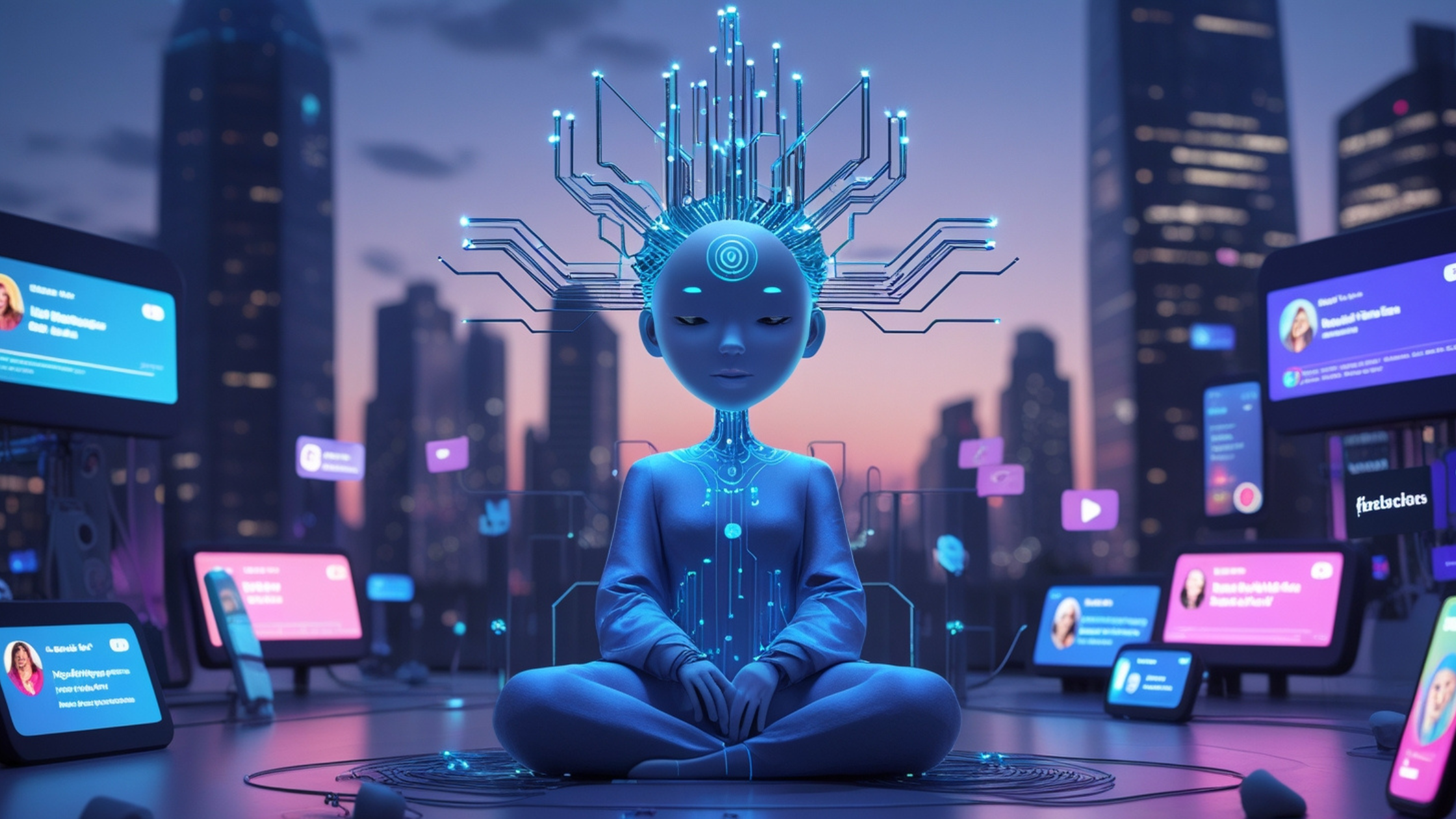Introduction
In the past decade, artificial intelligence has become the unseen engine behind nearly every sphere of influence — from politics to entertainment. The rise of algorithmic power has changed how societies perceive leadership, fame, and information. AI now determines what news is consumed, what content goes viral, and even how public sentiment evolves.
At the same time, celebrities have become crucial players in global politics and digital communication. Their reach across borders allows them to act as informal diplomats and advocates for social causes. The combination of AI-driven media and celebrity activism is redefining how public influence works in the 21st century, blurring the boundaries between fame, governance, and technology.
The Power of Algorithms in Political Communication
Governments and political parties now rely heavily on data algorithms to craft strategies that resonate with specific demographics. Artificial intelligence helps campaign teams predict voting behavior, analyze sentiment, and tailor messages with precision that would have been impossible a decade ago. This data-driven politics has created an entirely new landscape where public emotion can be measured and influenced in real time.
However, this reliance on digital prediction tools also comes with risks. Algorithms can unintentionally amplify bias, misinformation, or emotional triggers, leading to polarization. What was once a means to understand the public can quickly become a mechanism to manipulate it. As AI becomes more entrenched in political operations, nations face growing pressure to regulate how data is used in governance.
Celebrities as Digital Activists in the New Era
Modern celebrities are no longer content to simply entertain — they lead movements. Figures such as Taylor Swift, Leonardo DiCaprio, and BTS have leveraged their online influence to address issues like climate change, voting rights, and social justice. Their digital activism often reaches audiences traditional politicians struggle to engage. Through livestreams and social media campaigns, they inspire civic participation among younger generations.
This new era of celebrity influence intersects directly with technology. Social platforms amplify every message, but AI determines who hears it and how far it spreads. As a result, stars must navigate a complex algorithmic ecosystem where influence depends as much on digital visibility as on credibility. Their advocacy has become part of a larger global dialogue about how social networks shape democracy.
AI and the Global Flow of Information
Artificial intelligence controls much of what people around the world see online. Algorithms decide which videos, articles, and posts appear in front of users, creating invisible borders of information. This means global citizens often experience reality through the filters of code rather than objective reporting. AI has therefore become both a unifying and dividing force, capable of connecting cultures while isolating perspectives.
Nations are increasingly aware of this hidden influence and are competing to control their digital narratives. From the United States to India and China, governments are investing in state-backed AI systems that monitor and manage online trends. The struggle for information dominance is now as critical as the race for nuclear or economic power. Whoever commands the algorithm, commands the conversation.
The Rise of Celebrity Diplomacy in the Digital World
Celebrities today often act as cultural ambassadors, bridging gaps where political leaders fall short. When Rihanna comments on global protests or when footballers speak about human rights, their messages resonate across continents within hours. Their involvement gives humanitarian and political causes the attention they need to mobilize international audiences.
However, this global connectivity brings new responsibility. Celebrity statements, when misinformed or sensationalized, can escalate diplomatic tensions or spread false narratives. As fame and technology intertwine, the line between influence and interference grows thin. Digital diplomacy now depends as much on social media engagement as on official communication channels.
The Ethics of Influence in the Age of AI
The power to shape public thought through algorithms and personalities demands ethical reflection. Social media companies are facing calls to disclose how their recommendation systems operate. Governments are debating new regulations to ensure transparency in digital advertising and political messaging. This tension between free expression and accountability is defining the moral debate of the decade.
At the same time, individuals are beginning to question their role in the system. With every like, share, and comment, users feed data that strengthens algorithmic control. The public’s growing awareness of how their behavior fuels digital influence could mark the beginning of a new consciousness — one where people demand both transparency and fairness from technology and its stewards.
FAQs
How do algorithms affect global politics?
They analyze public sentiment and deliver targeted content, shaping how political ideas spread and evolve across populations.
Why are celebrities important in the digital age?
Their voices carry global reach, turning social and political issues into mainstream conversations that engage millions.
Can AI amplify misinformation?
Yes. Poorly regulated algorithms can prioritize sensational content, contributing to polarization and public confusion.
What is celebrity diplomacy?
It refers to the influence of global figures who use fame to address political or humanitarian causes, often reaching audiences beyond traditional diplomacy.
Are there ethical risks in algorithmic influence?
Absolutely. Lack of transparency in data collection and content curation can undermine democratic processes and public trust.
Conclusion
The convergence of artificial intelligence, politics, and celebrity culture has created a new world order of influence. Information, once controlled by institutions, now flows through algorithms and personalities that shape public consciousness faster than any government policy can. This dynamic is both empowering and dangerous, giving individuals unprecedented voice while concentrating unseen power in digital systems.
As the world enters deeper into this algorithmic age, responsibility becomes the defining challenge. Nations, companies, and citizens must decide how to balance innovation with integrity. The outcome will determine whether technology becomes a bridge toward shared progress or a barrier that divides societies through invisible lines of data and influence.




